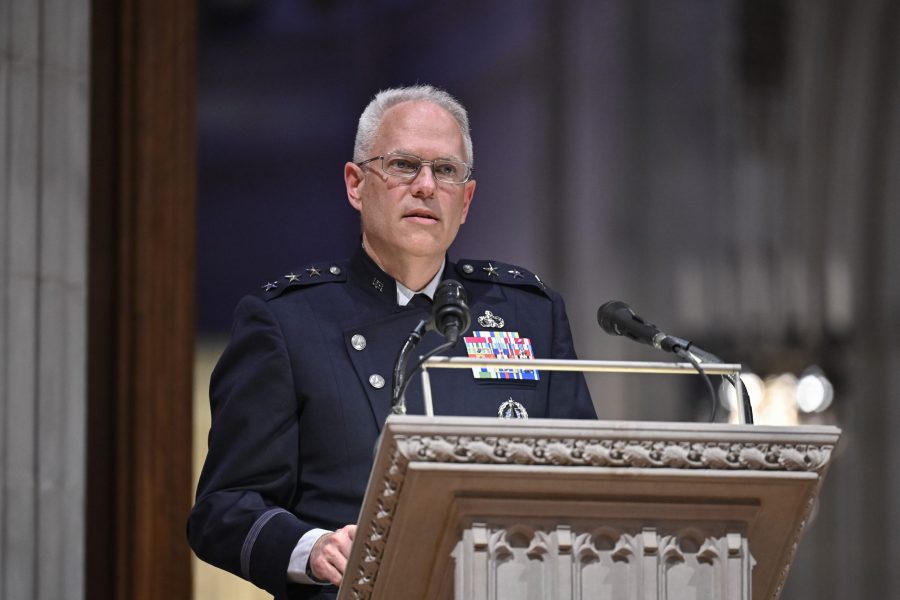Lt. Gen. Philip A. Garrant became the second ever leader of Space Systems Command on Feb. 1, pledging to align the Space Force’s main acquisition arm with the visions of Chief of Space Operations Gen. B. Chance Saltzman and Air Force Secretary Frank Kendall.
“As a command, we will be focused on Gen. Saltzman’s theory of success, Secretary Kendall’s call to reoptimize for great power competition, and continuing the organizational design our leadership envisions,” Garrant said during a ceremony at Los Angeles Air Force Base, Calif.
In particular, Garrant, who previously served as Deputy Chief of Space Operations for strategy, plans, programs, and requirements, hinted that SSC may expand its “Integrated Mission Delta” and “System Deltas” prototypes. Two each stood up in the fall of 2023, as part of a push by Saltzman to align the Space Force around missions rather than functions by putting operations and sustainment under one roof and tying them closely together with acquisition officials.
“We’ll continue shaping what SSC is intended to become, with mission capability-focused IMDs and SYDs while continuing our focus on culture, speed, and growing our most important resource—you,” said Garrant.
Garrant also said that as SSC commander, he will work to connect with Guardians across the country and the globe.
“I plan to meet as many of you as I can, traveling to SSC units that are not here in Los Angeles. I want to hear your ideas and share my vision for the command as we move forward,” Garrant said. “My promise is to lead and communicate with you.”
Garrant is succeeding from Gen. Michael A. Guetlein, who has moved up to become Vice Chief of Space Operations.
Reflecting on his two years at SSC, Guetlein stressed the pressing need to address evolving threats posed by China in space, while praising Garrant as an “incredibly strong, battle-tested leader.”
“Over the past year, we observed record setting Chinese military exercises around Taiwan that are not only unprofessional, but increasingly unsafe,” Guetlein said. “It is only a matter of time until they until they see the opportunity to break from international norms and threaten another nation sovereign.”
Guetlein also highlighted Garrant’s diverse experience leading him to his new job—prior to his time on the Space Staff, Garrant was a program executive officer in the Missile Defense Agency and spent time at the Air Armament Center. He also had several stints at SSC’s predecessor organization, the Space and Missile Systems Center.
Saltzman, who officiated the change of command ceremony, praised SSC’s achievements under Glutelin’s leadership, pointing to the Victus Nox mission in September that set a record by launching a satellite into orbit just 27 hours after receiving orders. Calling it an “unprecedented accomplishment,” Saltzman stressed the significance of such missions adapting to the era of great power competition.
“Space dominance starts with space awareness,” Saltzman said. “And that’s why your recent successes with the surveillance, reconnaissance, and tracking program have been so important.”
Moving forward, Garrant pledged, “we have a lot to do, so, get ready.”
